
Germany prosecutes ex-Nazi camp guard aged 98
A man is accused of complicity in the murder of thousands of Sachsenhausen concentration camp inmates.
2023-09-01 22:23

The worst Champions League 'groups of death' ever
The toughest Champions League groups of death in the competition's history, with the likes of Real Madrid, Manchester United and Manchester City frequently populating these fiendishly tricky matchups
2023-09-01 21:23
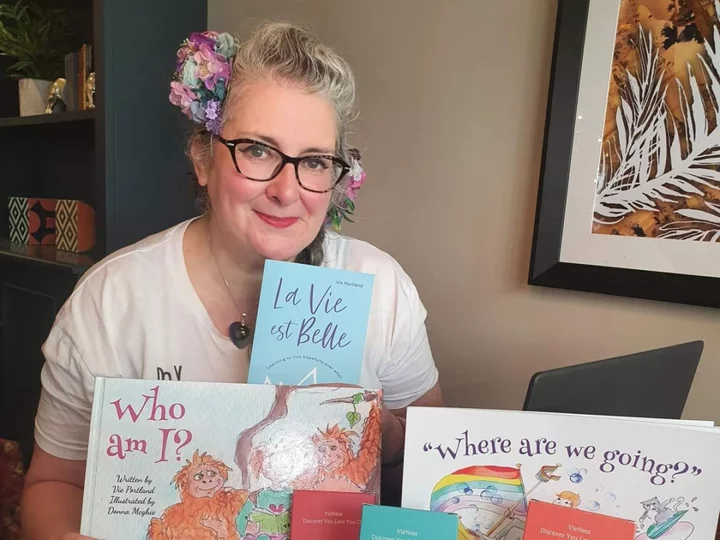
Woman bullied over skin blistering disorder writing books to stop other children ‘feeling like freaks’
A woman who was born with a rare inherited skin blistering disorder which caused her to get “bullied” and feel “like a freak” throughout her childhood and teenage years, as well as forcing her onto a soft food diet of “bananas and custard” for weeks at a time, now writes inclusive children’s books with a focus on disability to encourage “other children to grow up with confidence”. Vie Portland, a 52-year-old confidence coach, author and speaker from Winchester, was born with epidermolysis bullosa simplex generalised intermediate but was not formally diagnosed with the skin condition until she was 28. According to the NHS, epidermolysis bullosa (EB) is a rare inherited skin disorder that causes the skin to become very fragile, and any trauma or friction to the skin can cause painful blisters. Vie is yet to find a treatment that helps her condition, and her feet are regularly covered with huge internal blisters which feel like she has “stones under (her) skin.” Her condition even means that she cannot eat “anything acidic or too peppery” and often spends weeks eating “just bananas and custard”. She has also developed thoracic outlet syndrome, chronic bursitis, and often has spasms, because of walking with a limp to try to ease the pain. Now, Vie writes inclusive children’s books to raise awareness about living with a disability, because she grew up “afraid that there was no one else like (her)”, and hopes to write a book about someone with her condition next. Vie told PA Real Life: “So it feels like I’ve got stones under my skin all the time on my feet and it doesn’t matter how much you try to explain that to someone people just don’t get it. “Even things like if I meet friends for a drink in a lovely pub garden – I’ll be in agony because of walking on gravel and it takes so much energy out of me. “I can’t eat anything acidic or too peppery – sometimes I have to eat just bananas and custard for weeks.” Vie was born with the skin condition, saying: “I was born with no skin on my bottom and had some skin missing on my left foot. “The charity that works with people that have EB wasn’t around then – I spoke to someone recently from Debra, the charity, and they said if you looked at all the people on a double-decker bus, you’d expect to find at least one person with psoriasis. “But, you’d have to wait for over 700 buses before you met someone with EB.” As a child, Vie regularly had huge blisters all over her feet and the back of her heels. She explained: “I remember wearing jelly shoes one summer, and heat and friction are two of my triggers. “Throughout the day, blisters grew around the rubber shoes and I had to have the pair of shoes cut off my feet – it was excruciating.” When Vie was a teenager, she was very self-conscious of her condition, she explained: “I was in constant pain, and I struggled with all shoes and walking anywhere. “We’re always told not to pop blisters, but when you have EB they tell you to pop them because they get so big. “I didn’t know that at the time and it was just so painful. “People were noticing how I walk and I was embarrassed to show my feet – I didn’t have a normal childhood because of this. “Even something as simple as opening a bottle makes several layers of skin come off and cause me to have raw skin all over my hands, I was told this was weird by other people.” Doctors were baffled by Vie’s condition, over the years, she was told she had different types of eczema and even that she was allergic to her own sweat. But, at age 28, she was diagnosed with EB by a dermatologist in London. She said: “I just grew up believing that it was my fault and I was afraid that there was no one else like me.” “It all just made sense. “They even took pictures of my feet for a medical journal because it was so rare.” After getting her diagnosis, Vie began researching the charity DEBRA, which specialises in EB. She said: “I started finding out that there were people like me – it was amazing, growing up, I was bullied and felt like a freak.” Since then, Vie has sadly not been able to find a treatment that helps her condition. “There’s no cure for EB but things have moved on a lot over the past 20 years,” she said. “We have special types of dressings and creams which can help alleviate the pain.” On top of this, because Vie has been walking “unusually” for most of her life, she has developed thoracic outlet syndrome, chronic bursitis, and often has spasms. Vie said: “It can be frustrating at times because it just feels like no one will ever understand what it is like. “For most people, blisters are a bit painful, but it’s all right, but for me, it’s one of the worst pains in the world.” Now, Vie is focussing on raising awareness about living with a disability, and has recently written two inclusive children’s books called ‘Where Are We Going?’ and ‘Who Am I?’. She said: “I want other children to grow up with confidence and not to feel like a freak like me. “Children aren’t born with prejudice and I think it’s really important to teach them about all of our amazing cultures and worlds. “In my books, I don’t explicitly say the character is disabled until the discussion questions at the end – I want the character to be accepted and not defined by their disability. “I think people have more in common with each other than things that are different, and that’s a beautiful thing. “I’m hoping to write a book about someone with my condition – that’s my next plan.” Read More Charity boss speaks out over ‘traumatic’ encounter with royal aide Ukraine war’s heaviest fight rages in east - follow live Fraser Franks undergoing heart surgery – four years after ‘hidden’ condition cut short football career 4 viral TikTok make-up trends you’ll actually want to try Childhood Cancer Awareness Month: What are the warning signs that your child might have cancer?
2023-09-01 21:23

Childhood Cancer Awareness Month: What are the warning signs that your child might have cancer?
It’s heart-breaking to see a child that’s seriously ill, particularly when they’ve got cancer and might not survive. But children do get the disease – and it’s being highlighted during September’s Childhood Cancer Awareness Month. Fortunately, it’s not common. But every day in the UK, 10 families receive a cancer diagnosis for their child, teenager or young adult, and it’s the leading cause of death in children under 14, according to the charity Children With Cancer UK (CWCUK). However, Jeanette Hawkins, chief nurse at the Children’s Cancer and Leukaemia Group (funded by Young Lives vs Cancer), stresses that childhood cancer isn’t as rare as people might think, with a similar risk as diabetes, epilepsy and bacterial meningitis. “Use of the word rare for childhood cancer is a barrier to diagnosis as both GPs and parents therefore don’t consider it’s possible,” she explains. “Families, on average, have three to five GP visits before cancer is suspected. We need to reduce that by increasing awareness. Remember that childhood cancer is often a constellation of non-specific persistent symptoms, rather than a single ‘red flag’ that would alert a GP. “If you’re worried about your child keep going back.” Christiana Ogunbote, head of research at CWCUK, says childhood cancer accounts for less than 1% of all cancers in the UK, and explains there are 12 main categories of cancers affecting children, with the most common being leukaemia (30%), brain, central nervous system (CNS), intracranial tumours (26%) and lymphomas (11%). Ogunbote says cancer symptoms in children can vary widely depending on the cancer type and where it is in the body, but points out: “Often the individual symptoms of cancer can be similar to common childhood illnesses, so it can be hard to identify. “If a symptom progresses or doesn’t get better as quickly as expected, we would suggest getting it checked out by a medical professional. It’s useful for parents who know what’s ‘normal’ for their child to be aware of the signs and symptoms of cancer, as earlier diagnosis will support better outcomes for children and young people.” Here, Ogunbote outlines the symptoms of the three most common childhood cancers… 1. Leukaemia Symptoms of leukaemia in children and babies, which may be acute myeloid or acute lymphoblastic leukaemia (ALL), can include frequent and persistent infections, unusual bleeding and/or bruising, tiredness, paleness, breathlessness and, with ALL, coughing and anaemia. “Childhood leukaemia develops quickly,” says Ogunbote. “but it’s possible for some or all of these symptoms to be apparent.” She says a leukaemia diagnosis can be made from a blood test, which may reveal low numbers of normal white blood cells and large numbers of abnormal white blood cells. Further tests will then be done on a sample of bone marrow to confirm the diagnosis. 2. Brain and spinal tumours The symptoms of brain and spinal tumours (central nervous system tumours) vary between age groups, says Ogunbote, but symptoms in babies may include persistent/recurrent vomiting, balance/co-ordination/walking problems, abnormal eye movements or suspected loss of vision, behaviour change (particularly lethargy), fits or seizures (not with a fever), abnormal head position such as head tilt or stiff neck, and increasing head circumference. Children’s brain tumour symptoms are similar to symptoms in babies, but may also include a persistent/recurrent headache, blurred or double vision, fits or seizures, reduced consciousness and abnormal growth. Ogunbote says symptoms vary depending on the type and site of the tumour, and develop much more slowly with low grade tumours. But she stresses: “It’s important to remember that many of these symptoms are extremely common, and experiencing one by itself is rarely a sign of a brain tumour.” A CT or MRI scan will be done if a brain tumour is suspected, and if the scan confirms the diagnosis, further investigations will determine the type of tumour and best treatment. 3. Lymphoma Children may get a cancer of the lymphatic system known as either Hodgkin or non-Hodgkin lymphoma, and Ogunbote says symptoms of both include a persistent (lasting a few weeks) painless swelling of a single lymph gland, usually in the neck, or possibly in the armpit or groin with non-Hodgkin, a cough or breathlessness (if glands in the chest are affected), fevers, sweats, and weight loss. There may be itching with Hodgkin lymphoma, and with non-Hodgkin there may be tiredness, feeling full after a small meal, stomach pains (if abdominal lymph glands are affected), and sleep sweats. Diagnosis is confirmed by removing part or all of an affected lymph gland, usually under general anaesthetic, and doing a biopsy on it so the cells can be examined in a laboratory. Further tests, like x-rays, CT and MRI scans and blood tests, will also be carried out to determine the size and position of the lymphoma and whether it has spread. This is known as staging. “Many of the symptoms of lymphoma can also be symptoms of other illnesses, so this can make it difficult to diagnose,” explains Ogunbote. “Symptoms your child might experience depend on where the lymphoma is in their body, and symptoms vary from child to child, even if they have the same type of lymphoma.” Read More Charity boss speaks out over ‘traumatic’ encounter with royal aide Ukraine war’s heaviest fight rages in east - follow live 4 viral TikTok make-up trends you’ll actually want to try Daily aspirin dose could help prevent diabetes in older people – researchers Secondhand September: The best places to buy pre-loved fashion online
2023-09-01 16:28
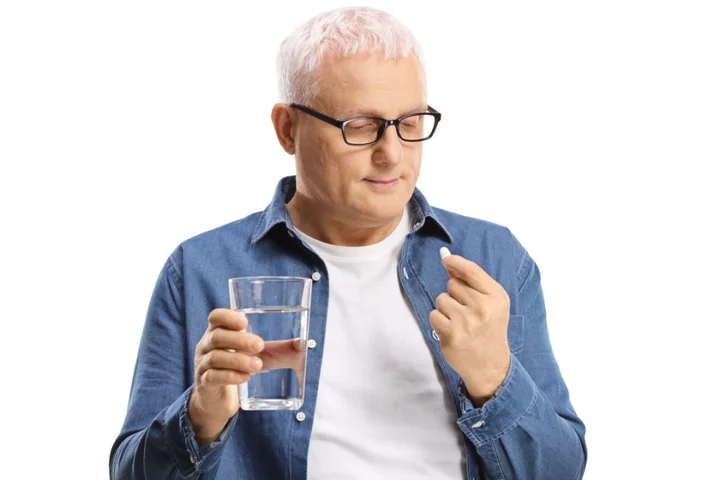
Daily aspirin dose could help prevent diabetes in older people – researchers
Taking 100mg of aspirin every day could lower the risk of people aged 65 and over developing type 2 diabetes, researchers have suggested. Scientists – led by Professor Sophia Zoungas of Monash University’s School of Public Health and Preventive Medicine in Melbourne – said their findings warrant further exploration but do not change the current clinical guidelines on older people taking aspirin. Some 16,209 people were included in the study; 8,086 were given aspirin while 8,123 were given a placebo. All were aged 65 or over and did not suffer from cardiovascular disease, physical disabilities or dementia. Although these new findings are of interest, they do not change the clinical advice about aspirin use in older people at this time Prof Zoungas Over a median follow-up of 4.7 years, researchers found the group given aspirin had a 15% reduction in type 2 diabetes and a slower rate of increase in fasting plasma glucose (FPG) levels. The authors said: “Given the increasing prevalence of type 2 diabetes among older adults, the potential for anti-inflammatory agents like aspirin to prevent type 2 diabetes or improve glucose levels needs further study.” The findings will be presented to delegates at the annual meeting of the European Association for the Study of Diabetes (EASD) in Hamburg in October. However, the study was a follow-up of the ASPREE trial, which was published in 2018. It found taking aspirin led to a 38% increased risk of major haemorrhage in older adults without any reduction in incidence of cardiovascular disease. Prof Zoungas said her team’s research does “not change clinical advice” around older people taking aspirin. According to the NHS, a low-dose of aspirin – 75mg – each day can help to prevent heart attacks and strokes in people who are at high risk of them, but should only be taken if your doctor recommends it. Prof Zoungas added: “The earlier published trial findings from ASPREE in 2018 showed aspirin did not prolong healthy independent living, but was associated with a significantly increased risk of bleeding, primarily in the gastrointestinal tract. “Major prescribing guidelines now recommend older adults take daily aspirin only when there is a medical reason to do so, such as after a heart attack. “Although these new findings are of interest, they do not change the clinical advice about aspirin use in older people at this time.” In June, a paper published in The Lancet Diabetes and Endocrinology journal claimed 1.3 billion people could be living with diabetes by 2050 – more than double the 529 million cases in 2021. Academics described the condition as one of the “biggest public health threats of our time”. However, Dr Faye Riley, research communications manager at Diabetes UK, said the link between aspirin and diabetes prevention “remains unclear”. She added: “With more than 2.4 million people in the UK at high risk of type 2 diabetes, there’s an urgent need to find new and better ways to help people avoid the condition. “While this research found that taking a daily low-dose aspirin was linked to a small decrease in risk of type 2 diabetes in older people, whether aspirin has a role to play in type 2 prevention remains unclear, and this approach may have unwanted side effects. “We know the use of daily aspirin increases risk of potentially serious bleeding in people with diabetes and others, so we advise only taking daily low-dose aspirin if your doctor recommends it and they will discuss exactly what dose is right for you. “We do know the best ways to reduce your risk of type 2 are getting support to lose weight if you need to, eating a healthy, balanced diet and doing more physical activity. “ Read More Charity boss speaks out over ‘traumatic’ encounter with royal aide Ukraine war’s heaviest fight rages in east - follow live Secondhand September: The best places to buy pre-loved fashion online What are gynaecological cancers and how can you prevent them? Alzheimer’s: How and when to talk to someone about their memory loss
2023-09-01 15:55
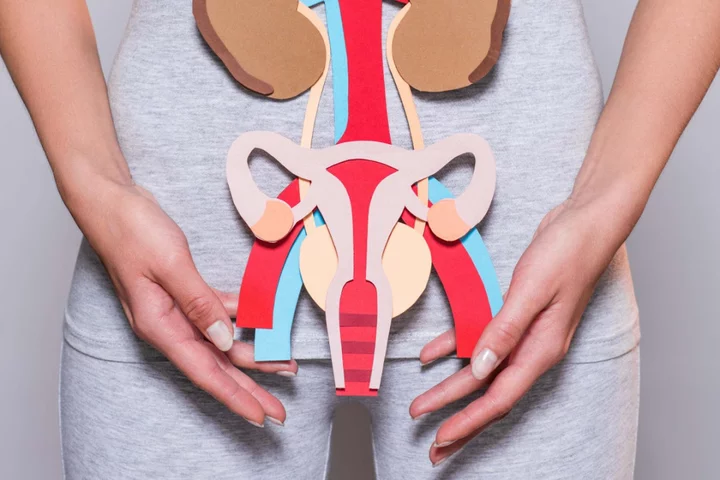
What are gynaecological cancers and how can you prevent them?
September is Gynaecological Cancer Awareness Month, which sees charities joining together to put the spotlight on the range of cancers that start in the female reproductive system. There are five main types of gynaecological cancer – cervical, ovarian, vaginal, vulvar and uterine (or womb) – plus fallopian tube cancer, although this is very rare. Around 22,000 women are diagnosed with a gynaecological cancer each year in the UK, of which 21 die every day, according to charity The Eve Appeal. However, some of these cases are preventable, and with the right treatment, many gynaecological cancers have high survival rates. Here, experts answer some key questions about the prevention and treatment of gynaecological cancers. What are the symptoms of gynaecological cancers? “The symptoms of gynaecological cancers can vary,” says gynaecologist Oudai Ali from New Victoria Hospital. “But some common signs to watch out for include abnormal vaginal bleeding, pelvic pain or discomfort, unusual vaginal discharge, new vulval lump or ulcer and changes in urinary or bowel habits.” If you’ve noticed any of these signs, follow the ‘if in doubt, check it out’ rule, Ali says: “It’s crucial for patients to consult their GP if they experience any of these symptoms, as early detection can significantly improve treatment outcomes.” Severe ongoing bloating and feeling full very quickly, unintentional weight loss and fatigue are also indications it’s a good idea to get things checked out. Are regular screenings important for gynaecological health? Routine screening programmes are not available for all types of gynaecological cancer. However, where they are available – such as cervical smear tests – attending screenings can be life-saving. “Regular screenings, such as smear tests and HPV (human papillomavirus) tests, are vital for the early detection of cervical cancer and can prevent it at its pre-cancer stage,” says Ali. “Additionally, it’s important for individuals to discuss family history and risk factors with their healthcare provider to determine which screenings are appropriate.” Research shows that cervical cancer risks are higher for people who don’t attend screenings. “Cervical cancer risk is estimated to be 1.7% among women in the UK who don’t attend screenings,” says Mr Andrew Pooley, consultant gynaecologist at New Victoria Hospital. “Other risk factors are related to a higher exposure to HPV, the use of the contraceptive pill for over 10 years, or a weak immune system.” Ali adds: “The age to start screening can vary depending on the type of cancer and a patient’s individual risk factors. Pap smears typically start around age 25.” For cancers where there isn’t a national screening programme, your GP can refer you for blood tests and scans if you are concerned about symptoms. Can gynaecological cancers be prevented? While not all gynaecological cancers can be prevented, there are steps you can take that in some cases may help reduce your risk. “Maintaining a healthy lifestyle, including a balanced diet, regular exercise, and avoiding tobacco, can help,” Ali says. “The HPV vaccine is a powerful tool in preventing certain gynaecological cancers. It protects against several strains of HPV that can lead to cervical, vaginal, and vulvar cancers. It’s recommended for both boys and girls, ideally before they become sexually active, to provide the greatest protection.” Some gynaecological cancers can have a hereditary component, too. “A family history of bowel, breast or ovarian cancer may increase the risk,” Ali explains, which is why it’s important to discuss family medical history at screenings. “They can assess the risk accurately and recommend appropriate screenings or genetic testing if necessary.” This said, anyone can potentially get cancer, so getting any symptoms checked as soon as possible is always key. What are the available treatment options for gynaecological cancers? Treatment options vary depending on the type and stage (from one to four) of cancer. “They may include surgery, chemotherapy, radiation therapy, hormone therapy, targeted therapy, or a combination of these treatments,” says Ali. “The choice of treatment is personalised to each patient’s specific diagnosis and medical history.” Survival rates for the main five gynaecological cancers when diagnosed at stage one range from 75%-95% according to Cancer Research, which further highlights the importance of early detection. New Victoria Hospital has launched its Community Champion Campaign, which will offer free scans and treatment to people across the UK for the sum of £125,000. To apply visit: newvictoria.co.uk/communitychampioninitiative. Read More Charity boss speaks out over ‘traumatic’ encounter with royal aide Ukraine war’s heaviest fight rages in east - follow live Alzheimer’s: How and when to talk to someone about their memory loss As Simon Cowell shares positive therapy experience, how can it help even if you aren’t in crisis? Project launched to bust myth that cancer is a ‘white person’s disease’
2023-09-01 14:17
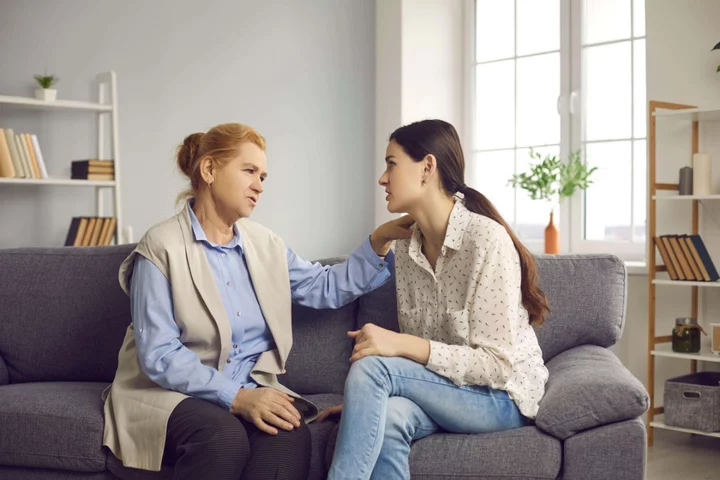
Alzheimer’s: How and when to talk to someone about their memory loss
You may have noticed someone close to you changing – perhaps they are more forgetful, not quite themselves. After a quick search online or a chat with family members or friends, you may be left thinking they’re developing Alzheimer’s. But how do you approach a conversation about dementia when it’s such an emotive topic? “As we get older, we’re all prone to becoming more forgetful, taking longer to remember certain things, getting distracted more easily or struggling to perform several tasks at once,” says head of knowledge at Alzheimer’s Society, Dr Tim Beanland. “These are common signs of getting older, but there is still a very sharp distinction between normal ageing and dementia.” Symptoms that may worry you “Symptoms of dementia gradually get worse over time,” Beanland explains, “and can appear as memory loss, confusion, needing help with everyday tasks, problems with language and understanding, or changes in behaviour. Although symptoms typically occur in people aged 65 and over, they can occasionally appear as early as twenty years sooner.” You may be scared Seeing these types of changes is understandably worrying – it’s a reminder of the age and health of those around us. “Noticing what might be dementia symptoms in a loved one can be distressing and confusing, particularly for people who have never dealt with dementia before,” Beanland says. “Both parties may feel nervous or worried about how to address the topic of potential dementia symptoms, and may not know where to begin.” Be open Beanland suggests asking questions like, ‘How are you feeling lately, physically and emotionally?’ Or ‘Do you have any health worries you’d like to talk about?’ It’s important to remember when approaching someone who may be experiencing dementia symptoms to do so gently, calmly and in a reassuring and supportive manner. “People experiencing dementia symptoms may find it difficult, or take a bit longer, to find the words they wish to say,” notes Beanland. “So, allowing them extra time, or giving them gentle prompts, can help them find the words they’re looking for, without highlighting they’ve forgotten something.” Do your research Dementia or Alzheimer’s may not be the only answer. It’s important to remember there are other conditions which can cause similar symptoms to dementia, such as thyroid problems or urinary tract infections, says Beanland. “Try to focus on helping the person see their GP, to find out what is causing the problems they are having. It’s also important to understand that, whether you are experiencing dementia symptoms personally or you’re a concerned loved one, you do not have to face dementia alone. There is support out there for you. “I’d encourage anyone worried about their own or a loved one’s memory to use Alzheimer’s Society’s symptoms checklist. It will help to unlock the vital care and support you need, and give you the precious time needed with your family to plan for the future.” Read More Charity boss speaks out over ‘traumatic’ encounter with royal aide Ukraine war’s heaviest fight rages in east - follow live As Simon Cowell shares positive therapy experience, how can it help even if you aren’t in crisis? Project launched to bust myth that cancer is a ‘white person’s disease’ 10 slick ways to kit out your student digs
2023-09-01 13:22

Jonathan Gannon's Awkward Speech to the Arizona Cardinals Does Not Inspire Confidence
Jonathan Gannon gave a speech to fire up the Arizona Cardinals. It was awkward.
2023-09-01 13:17
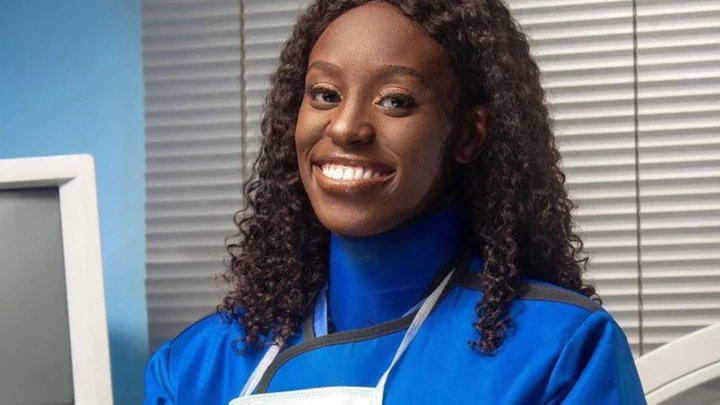
What a doctor's death in a lift tells us about Africa's debt crisis
Nigeria spends twice as much on debt repayments than on health and education combined, a report says.
2023-09-01 09:16

Brazil Burger King brand owner's shareholders reject poison pill in win for Mubadala
(Corrects headline to read Mubadala instead of Mubdala) SAO PAULO (Reuters) -Zamp, the owner of the Burger King brand in
2023-09-01 07:15
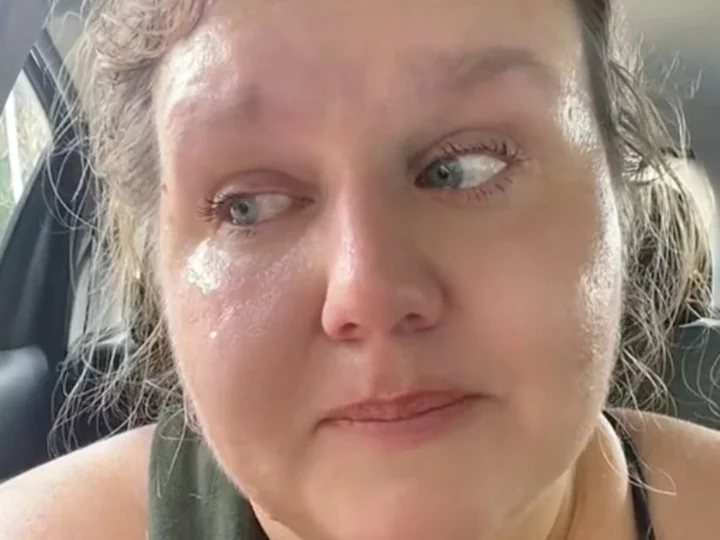
Woman shares heartfelt story of a stranger’s kind words to her at the gym
A woman shared an emotional story about a stranger’s kind words at the gym which brought her to tears. In her TikTok video, a gym-goer named Steph (@callmeindythanks) said that after working out for almost “over two years” she has been “struggling” lately with her progress, especially after an incident a few weeks previously in which two men made some cruel remarks about her weight. She told viewers that one of them “coughed into his hand and said ogre,” which she admitted hurt her feelings. Ever since that interaction, Steph has been grappling with “deep-rooted insecurities” about her weight, which has been impacted by ongoing medical issues. To treat her ailments, she explained that she takes “steroids” which have caused “blood clots” among other problems. As she has tried to deal with her medical issues, Steph said that she was, in turn, “neglecting” herself. When a man with “tattoos all over” approached her as she left the gym, she told viewers that she was bracing herself for what she thought was another bully. As a self-proclaimed overthinker, Steph remarked, “There are a lot of thoughts going through your head being a bigger woman in the gym because there’s all sorts of ages there, different body types, like super fit, not fit, and it kind of messes with your head.” What he ended up saying to her was not at all what she expected. She recounted: “He goes, ‘I’ve seen you in here every week, almost every day. I see you in here every week and I’m proud of you.’” His words of encouragement hit Steph hard, motivating her to make a video about the kindness of this stranger. “You have no idea how much people that are going through something appreciate the kindness,” she said through tears. “He didn’t have to say it, he doesn’t even know what I’m going through.” She continued to say that nobody besides the management at the gym knew about her medical condition. “I’m just grateful for people like you guys that encourage us, people like me. Even if you’re not like bigger but you’re still, like, insecure about something.” “I was having a hard day today but you know what?” Steph told viewers. “That made my day.” @steph5468 #gymprogress #workputjourney #keepgoing #healingjourney ♬ original sound - X There was an outpour of support for Steph and the stranger’s act of kindness online, with one fitness coach commenting on the video: “Just having someone say they are proud of you can move mountains for so many of us.” “To be seen as we are is such a human need in each of us,” someone else remarked. Another wrote, “Little happiness snowballs. We all gotta throw them sometime.” Many have taken to writing encouraging comments on Steph’s personal account where she frequently posts about her ongoing fitness journey. Including comedian Paul Kim, who commented on a recent video of Steph’s, saying: “Crush them with your consistency and progress. You got this!!! We believe in you.” The Independent has contacted Steph for comment. Read More Influencer sparks debate after admitting she asks to see man’s bank account info on first date Fitness influencer Larissa Borges dies aged 33 after double cardiac arrest Schoolboy almost dies from swallowing magnets for TikTok challenge Woman shares honest review of New York City apartment TikTok mom slammed after making 5-year-old son run in 104 degree heat
2023-09-01 03:17

2023 UEFA award winners revealed - including men's & women's player of the year
UEFA reveals men's and women's coaches and player of the year.
2023-09-01 02:15
